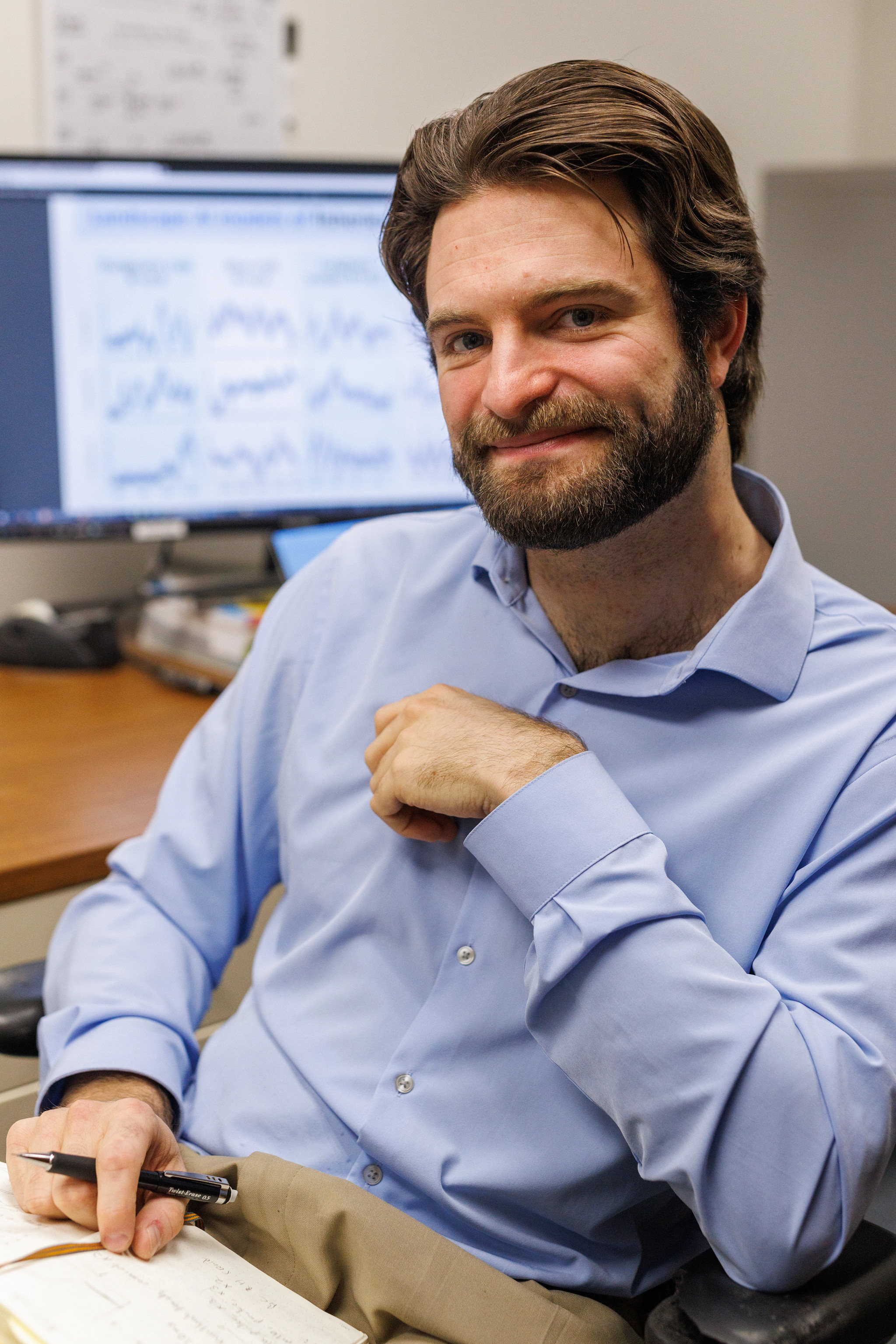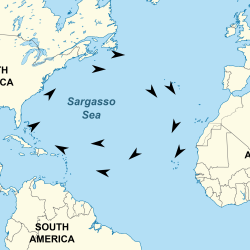Vadim Karatayev Joins UMD as William J. Higgins Assistant Professor of Biology
Karatayev, who uses math to understand how ecosystems change, is the second UMD faculty member to hold this endowed professorship.
Mathematical ecologist Vadim Karatayev joined the University of Maryland’s Department of Biology on July 1, 2024, as the new William J. Higgins Assistant Professor of Biology.

Previously held by Scott Juntti from 2017 to 2024, the position supports a biology faculty member with an exceptional record of research and teaching. It was the department’s first endowed professorship and was named in honor William J. Higgins, an associate professor emeritus of biology who taught at UMD for nearly 45 years.
Biology Chair Joshua Singer said that Karatayev, who uses mathematical models to understand complex ecological systems, should feel right at home at UMD.
“He joins a group of well-known computational ecologists in the Department of Biology and bolsters a growing group of mathematical biologists on campus,” Singer said. “We look forward to his joining us.”
Karatayev agreed, adding that he is elated to join a group of colleagues with similar expertise.
“We have a really fantastic group of mathematical biologists at Maryland who have an excitement for both the biology and the underlying math and dynamics,” Karatayev said. “Having a community that shares that is thrilling.”
While Karatayev’s interest in mathematical modeling came later in life, he has been interested in ecology since childhood. Beginning at age 5, he’d accompany his field biologist parents on surveys of endangered and invasive species in their native Belarus—a family tradition that continued after they moved to the United States several years later. During periods of prolonged drought in Texas, Karatayev searched streams near his home for native freshwater mussels, dodging the occasional water snake.
“We were always outside counting critters,” he recalled. “I got really fascinated with how it all works behind the scenes—how ecosystems assemble and how they function and when they fail.”
Karatayev ultimately followed in his parents’ scientific footsteps but realized in college that he enjoyed the math side of ecology more than fieldwork. After earning a bachelor’s degree in biological sciences from Cornell University in 2014, he used dynamical systems to study ecosystem collapse and resilience at UC Davis, where he earned his Ph.D. in ecology in 2019.
Karatayev went on to conduct postdoctoral research at the University of Guelph in Canada and then held a U.S. National Science Foundation postdoctoral fellowship from 2021 to 2024 at the University of Kansas, where he received a research achievement award.
As a scientist, Karatayev has studied everything from shrinking salmon to human behavior during the COVID-19 pandemic to policy strategies to tackle climate change. He once spent a month on a ship as part of a U.S. Environmental Protection Agency study to understand invasive mussels in the Great Lakes, where the mollusks monopolize much of the available food, hurting animals higher up the food chain.
Ever since his Ph.D. program, Karatayev has taken a keen interest in kelp forests, not just because of how rapidly they grow, but also because of their vulnerability to threats such as ravenous sea urchins, which have been “bulldozing” California’s kelp in recent years.
“They are one of my go-to study systems because you have these lush forests that can grow up within a matter of months,” he said. “This is one of the fastest-growing species in the world, but they could also collapse just as quickly.”
For his Ph.D. thesis, Karatayev discovered that urchins were decimating kelp forests because their hunger made them more brazen. Instead of hiding from storms and predators in their rocky shelters, they started venturing out more frequently for food—and kelp forests were an easy target. This coincides with rising ocean temperatures, which are hurting the ability of kelp forests to regrow.
As part of his current research, Karatayev is merging dynamical models of kelp-urchin interactions with satellite observations of kelp along the U.S. West Coast and beyond. The goal is to map out the tipping points of kelp forests, in particular the temperatures that cause kelp ecosystems to collapse if they are exceeded.
Whether it’s kelp or mussels or another species entirely, the unifying theme in many of Karatayev’s studies is ecosystem change. He uses a combination of species data, process-based models and statistics (including machine learning) to predict what those changes may look like in the future.
“We take 40 or 50 years of data on a fish population or a kelp forest, and we may only have data on one or a few species in that system,” he said. “But from that progression of change, we can guess what's going on behind the scenes with the rest of the ecosystem, so we can reconstruct the underlying clockwork.”
Karatayev explained that climate change is already altering ecological interactions and ecosystem dynamics, presenting unique empirical and mathematical problems. In future studies, he plans to investigate the link between changes in species’ interactions (which are difficult to measure in field surveys) and changes in species’ abundance, as well as how dynamic interactions shape biological networks more generally.
Despite the negative ecosystem changes that Karatayev has seen in his studies, he remains encouraged by recent technological advancements, including the wider availability of satellite data. He is also inspired by the many interdisciplinary collaborations that have formed to tackle these problems and looks forward to continuing that dialogue at UMD.
“I get to work with everyone from friends in different areas of math to ecologists working with different ecosystems to social scientists,” he said. “There are tremendous challenges, but also very exciting opportunities and a lot of really fun teamwork.”
Additional donations to the Higgins Endowed Professorship can be made at https://go.umd.edu/higgins. To read about other endowed chairs and professorships in the college, visit https://go.umd.edu/endowedcmns.







